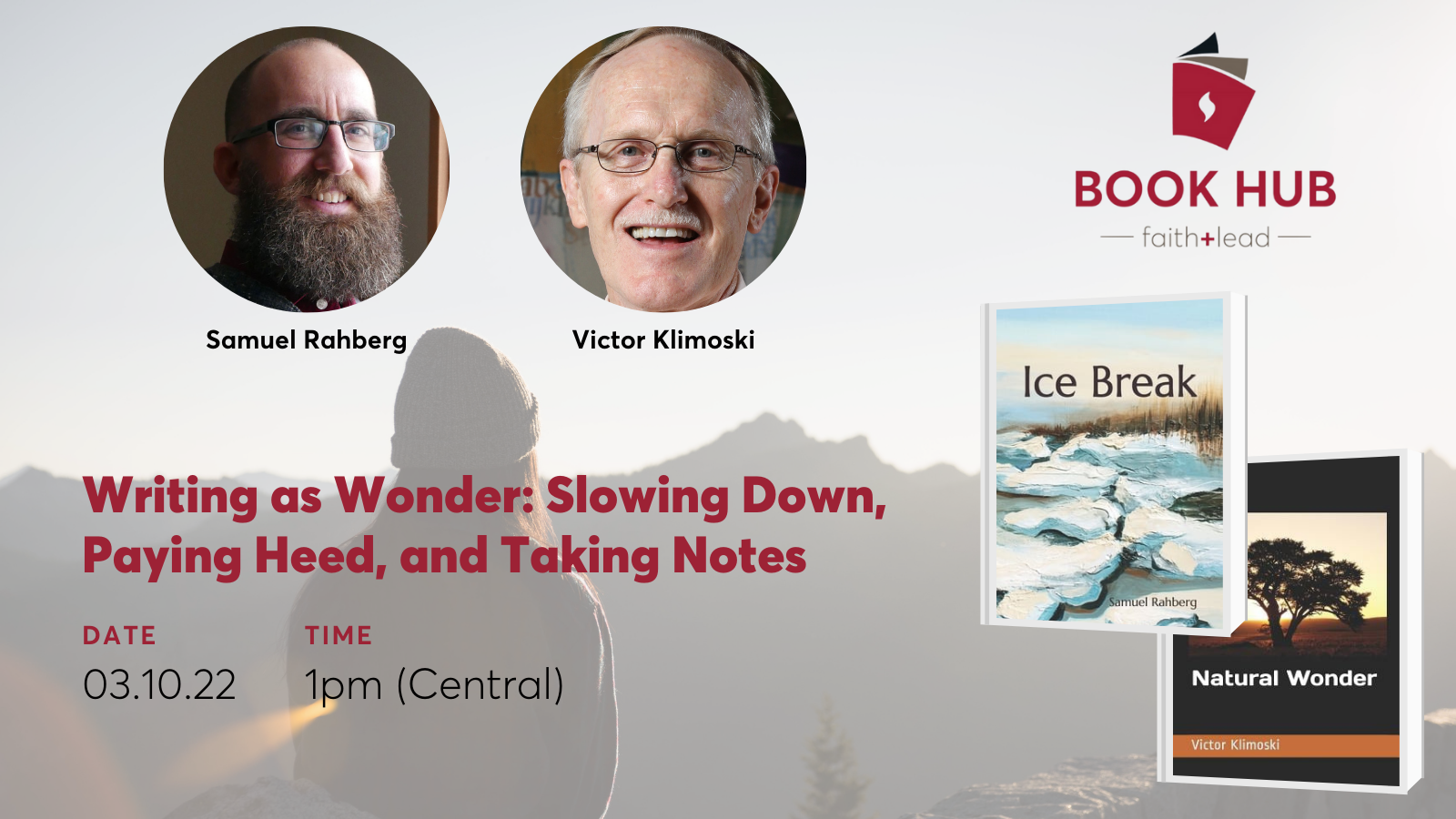Lead with Hope, Trust, Compassion, & Stability
Discover how ancient Christian wisdom can transform modern leadership. Learn to cultivate hope, trust, compassion, and stability through Benedictine stability, Ignatian discernment, and Desert spirituality. Integrate timeless spiritual practices to foster a thriving, faith-centered leadership approach.
The Ripple Effect of Keystone Practices
This winter, a small group discovered the ripple effects of simple habits like drinking 2 liters of water daily. Keystone practices—cornerstone habits that inspire intention and connection—can transform your days and relationships. Wood & Water Retreats invites you to reclaim or begin practices that ground and renew you. Start your year with one meaningful step.
Launching Our Love
What is inviting you beyond your own comforts and capacities in this season of your life? How are you feeling called to watch yourself, attend to the task at hand, and lean into blessing?
Writing As Wonder
We need writing to downshift from fragmentation and overstimulation, to give more of our hearts over to the present moment, and to remember what we discover in those encounters. Poems, for example, are testimony to that very process. In this two-part webinar, poets Victor Klimoski and Samuel Rahberg explore stories of wonder and do-able writing practices that enable any of us to listen.
Andrei Rublev's Faithfulness and Creativity in the Icon of the Trinity
Henri Nouwen observed that Rublev's Icon of the Trinity (1425 A.D.) would leave us in distant awe of the divine mystery if it did not so profoundly invite us into deeper intimacy with God (Behold the Beauty of the Lord: Praying with Icons, Ave Maria Press: 1987. Kindle Edition, location 143). The icon reveals something important to us about vocation, Nouwen suggests, if we look closely enough to notice the circle and the cross.
Praying Grace-Fully
From biblical times through the modern day, Christians have asserted that the practice of prayer is essential to the life of discipleship. Unfortunately, prayer can also become a source of shame and inadequacy. Who among us doesn’t feel that our prayer life isn’t what it should be?
Poem: Ceaseless Prayer
What is the point of discipleship
if not to live truthfully
in the Divine Presence,
to make our way, ready for thein-breaking of God’s grace?
Like desert monks we saturate
ourselves with Scripture
that we, too, might dwell in the Word
and put on the mind of Christ.
We who practice
receiving God’s touch
and waiting through its absence
cannot resist meeting joys and challenges
with more and more transparency.
Centeredness wells up
as biblical words and symbols
begin grounding priorities and decisions
in something other than mere ego.
The fullness of Christian life
spills over, then,
into convictions and actions
that serve the greatest good.
Call it prayer, call it lectio,
but do not let it be confined
to quiet moments before dawn.
Natural Connections
Fly fishing is not always a spirit-rich experience for me. In fact, it might be telling that I first picked up a rod simply because I thought dropping a fly into inviting spots might give me something interesting to do while I was bored with not catching fish. I like its practicality, so I keep at it and trust that it is important to my soul. I find that it entertains my mind and hands when I need to transition off life’s freeway onto a slow dirt road. Occasionally, on days like this one, the practice itself falls away and takes with it all my seemingly important thinking. In those precious moments, I realize anew that I am standing—and always have been—in the nearness of God. Fishing the fly can take me between mountains or over impressive stones, but always, always I am beside waters and among trees. Reflecting on what God speaks to me in beautiful moments like these, I know I need to listen more closely to the waters and the trees.
The Benedictine School of Spirituality (Part 3 of 3): Sustaining Lectio Divina and Preferring Nothing Whatsoever to Christ
Over time, the practice of lectio divina becomes less a set formula for prayer than a disposition of prayerfulness. We learn to slow down and trust the Spirit’s often non-linear process. We marvel at the way the Word so often speaks into our experiences and submit to the ways God is forming us today. Any fruits of that growth are noticed not necessarily within the set boundaries of “prayer time,” but in the fruit of everyday life.
The Benedictine School of Spirituality (Part 2 of 3): Praying the Psalms and Exercising Community
Thirteen of seventy-two chapters in the Rule of St. Benedict (RB) are devoted to instruction about liturgical prayer. Benedict goes to great lengths to establish a rhythm of life in community which is punctuated by prayer (the liturgy of the hours) and saturated in Scripture. Most central is praying the Psalms, which reflects the longstanding appreciation for the way this form of Scripture connects so deeply with the human experience.
Benedictine Spirituality (Part 1 of 3): Core Values
The Benedictine school of spirituality is an important voice in our world today, a voice which informs our praying, living and discerning. It is one among many schools that speak to contemporary hearts, yet it is particularly unique in its lasting impact on Western Christianity.
Benedict of Nursia lived from ca. 480 to 547 CE in Italy. The Rule of St. Benedict (RB) became a foundational text for monasticism in the West, having emerged in the sixth century as the Roman civilization was collapsing. There was societal chaos and political dissatisfaction and we might wish that the conditions of those times did not sound so familiar to our modern ears. What we know about St. Benedict himself comes to us mainly through Gregory the Great (ca. 540-604 CE), who praised Benedict for his discretion and moderation.
I Surrender . . .
“I surrender my need for security, affection and control. I surrender my need to change what I am experiencing in this moment. Welcome. Welcome."
These words are part of a gentle and down to earth prayer called "The Welcoming Prayer", which I learned at an event with Mary Dwyer and hosted by Minnesota Contemplative Outreach. Bit by bit, this little prayer is beginning to shape me.
Poem: Learning Lectio From An Old Welsh Cow
Slow and steady
tear the grass
grind, grind
iron jaws
keep chewing
drop down
pulling, pulling
raise head
chewing, looking
pause
watch
chewing, chewing
swat tail
pulling, pulling
tongue out
snort, snort
chewing, chewing
stand still,
lift tail
loose patty
chewing, chewing
pulling, pulling
all day long.
Spiritual Imagery and Experiences for New Contemplatives
Adults approaching forty occupy a unique space in the life cycle. Having moved beyond their teenage years, they have accumulated their own stories about lived challenges and opportunities. They have learned a great deal about their unique gifts, skills, and passions. At the same time, it is unlikely that they have begun to exercise their full personal capacity or experience the process of physical diminishment to the same degree as their elders.


















